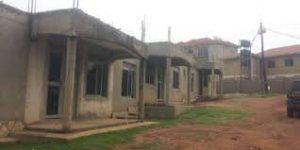
#OutToLunch: Lifetime skills for S6 students on vacation
By Denis Jjuuko If you visit some of the malls in Kampala these days, you would not fail to notice young people milling around the rails, dressed in damaged jeans and taking selfies with their peers. Many are on vacation having completed their advanced level secondary education even though there are many who may not be in this category. Some end up catching a movie or having some chips and chicken served in cardboard boxes. The majority though are just hanging around. For the next eight months or so, such students especially from middle income families will wake up to do nothing for nearly a year as they wait to join university and other such higher institutions of learning. Parents will be happy to let them hang around the city with reckless abandon. Yet this is the time for these young people to acquire some skills, do some work and gain experience or gain some lifetime skills. So what can students on a long senior six school break done during this time? Here are some ideas. Learning to drive Self driving vehicles are many years away even in the developed world. So driving will remain an important lifetime skill for many people. Some jobs such as sales and marketing in big organizations require somebody who knows how to drive. But also it is a job itself for many people. Somebody who knows how to drive has an advantage over someone who doesn’t. It also enables one to be responsible as drivers make decisions every second. If you want your child to improve their decision making capabilities, teach them how to drive. Don’t just teach them how to drive though. Let them learn how to change tyres, washing the vehicle and even changing oil. Cooking and baking There will never be a day when people won’t need food. Most people will always eat cooked food. So instead of the child eating food in cardboard boxes as I mentioned earlier, let them learn how to cook. You can take them to a school that teaches people to cook or bring a teacher at home to teach them. You can pull this together with your friends or relatives in the same neighborhood to reduce the cost. Even if they don’t end up doing this as a business, they will still be able to cook food for themselves and their families. If you teach them baking, they would even start earning income during this period. They can make cookies (or is it daddies?), cakes and such other stuff and sell to their colleagues or shops nearby using the same amount of money as capital that they were spending loitering in Kampala malls. Content creation Creating content is now a source of income for many. Many content creators or social and digital media influencers have no formal qualifications in the work they do. They get a smartphone and generate content. I believe that those who will get trained will become better and earn better. So teach the child photography and videography basics so that they don’t necessarily have to just spend their time taking selfies or photographing the food before they eat it so they can share with their buddies for bragging rights on Gram! Along the way they will become experts and start earning as soon as possible. You can hire a photographer or videographer to teach your children these skills. Even if they don’t become content creators, in whatever career they choose, content creation will be critical as all professions need it to communicate better. There are also some skills offered by companies like Google online such as digital marketing and data analytics that they can enroll for and many are free of charge. Instead of simply watching Netflix, they can spend some of their time getting these skills. Money skills Ugandan schools don’t largely teach people money skills. We learn it when we start earning it and we make many mistakes. So if people learn about money when they are still young, they will make informed decisions later. So the kids taking this long break from academics, can be taught about money by ensuring they manage the budget at home. Send them to markets to buy items and manage the entire process. If they can work somewhere in a place where they have to deal with money, that is even better even if they aren’t paid a lot. Do you have a friend who runs a fuel station, supermarket or restaurant? Those are great training areas on acquiring some money skills but also gaining some work experience especially customer care service and even income if possible however little it can be. The writer is a communication and visibility consultant. djjuuko@gmail.com

